What’s the best laptop brand? That is actually a very hard question to answer. While there are many detailed reviews of laptops, these can only cover the most immediate questions such as performance and design. Other important issues, like customer service and reliability, cannot be covered in the scope of a product review.
This makes picking a laptop purely off reviews a risky proposition. Sure, it might be great now. But what if you have a problem, and customer service is completely unhelpful? What if the laptop kicks the bucket in two years?
This guide will give you a full review of the brands, looking not only at the initial quality of the products but also long-term reliability and customer satisfaction. The information in this guide is compiled from multiple sources, including Laptop Magazine, Consumer Reports, CNET and others.
Acer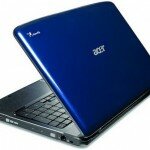
Although the Acer brand doesn’t carry as much clout in the United States as it does in other parts of the world, Acer is one of the largest PC vendors in the world. This is an accomplishment which Acer has only recently been able to boast of, as Acer had been one of the smaller vendors until recently.
In the United States market the Acer brand generally stands for value. Acer’s Aspire One netbooks and laptops have consistently been among the least expensive products in their respective markets. Acer is not alone in this pursuit of value, however, and is sometimes unable to undercut competitors like ASUS and Dell.
In terms of overall build quality and design, Acer tends to lag noticeably behind the competition. It is rare for an Acer product to have a serious design problem, but lack-luster displays, flexible keyboards, and flimsy construction plague many Acer products. Acer products generally earn recommendations because they provide powerful hardware relative to their price, not because the products are well put together. Exceptions include the new Acer Ultrabooks and some of the Timeline laptops.
According to Squaretrade, Acer’s reliability is poor, with a two year failure rate of just under 15% (the third worst). Customer support and overall customer satisfaction are also weaknesses of Acer. Acer’s customer service is known for limited hours and slow turn-around time on email support. According to the recent 2011 Laptop Magazine brand review, Acer’s customer support continues to degrade in quality. The phone support is slow and often vague in its assistance, while the website “doesn’t even correctly identify the company’s products.”
Verdict: C
Acer is all about value. They make a solid laptop every now and then, and Acer has some good ultraportables and netbooks, but there are often higher quality products available from other brands. The very poor customer service and poor reliability are problems.
Recommended Acer Laptops:
Apple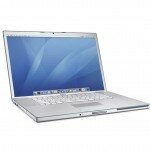
Everyone knows Apple’s reputation. The brand is known for expensive, high quality products which are inflexible in terms of customization but are extremely well put together.
This reputation is one which is well deserved. From a design standpoint, Apple is on top of the world. Even their least expensive product, the white plastic MacBook, feels more solid than most competing laptops. The aluminum MacBook Pro line is in a class of its own. The MacBook Pro laptops have excellent keyboards, best-in-class displays, and large trackpads with solid multi-touch support. It is very, very rare for a MacBook Pro to not receive an editor’s choice award in a review.
Overall reliability doesn’t quite live up to Apple’s can-do-no-wrong reputation, but is still robust. Consumer Reports rates Apple’s failure rate at 17%, a little better than average, while Squaretrade rates the two-year failure rate at just over 10%, which is just slightly above average.
If something does go wrong, however, you’re very likely to end up with a happy resolution. Apple’s customer service is the best in the industry. This is thanks to short hold times and prompt resolution of problems. The Apple Store also gives Apple customers the option to visit the Genius Bar, where users can meet with a technician face-to-face.
Verdict: A
Apple is among the best. Their products are expensive, but they are worth the price. If you want a premium laptop an Apple laptop is usually going to be the best choice.
Recommended Apple Laptops:
ASUS
One of the industry’s most innovative brands, ASUS is another example of a manufacturer which was not that well known in the North American market but which has recently been able to pick up steam. As with Acer, part of ASUS’s popularity has come from the outstanding value represented by many of ASUS’s laptops. Unlike Acer, however, ASUS is known for creating well designed, innovative products on the cutting edge of consumer laptop technology.
This is most apparent in their netbooks and ultraportable laptops. The ASUS Eee PC line is arguably the brand which proved that there was a market for netbooks, and over the last two years the Eee PC netbooks have been consistently superb. ASUS also has revolutionary ultraportables using ultra-low voltage processors which are capable of eight hours of battery life. Gaming laptops are another strong point of the brand, as the G53 and new G73 both provide excellent performance and value.
ASUS has been able to back up its innovative products with a solid reputation for reliability and customer service. While Consumer Reports lacks enough data to rank ASUS, Squaretrade’s data shows that ASUS laptops are the most reliable in their survey with a two year failure rate under 10%. Customer service is good over the phone, but the tech support website is confusing to navigate.
Verdict: A
ASUS is an excellent brand and is responsible for some of the most innovative products today. ASUS’s specialty is in netbooks and ultraportables, and anyone looking for a laptop in those categories should absolutely check out ASUS products.
Recommended ASUS Laptops:
Dell
Once the world’s largest laptop brands, Dell took some lumps after the turn of the century which resulted in a loss of market share. Dells were functional, but boring. In response, Dell has dramatically stepped up its efforts to provide innovative laptops such as the Dell XPS and Alienware M11x.
Yet in spite of those efforts, Dell’s real strength remains in mainstream laptops. The Dell Inspiron laptops are generally good value, and I’ve particularly liked the Inspiron 14z I recently reviewed. The Vostro small business laptops are also decent choices for consumers, and some can be had with better-than-average warranties at no extra charge. Dell’s mainstream offerings are made more attractive by numerous customization options. While most laptop manufacturers sell just a handful of pre-configured models with a couple of options, Dell offers a wide range of options including better display panels and discrete graphics.
In addition, Dell’s Alienware brand is more competitive with ever, offering solid gaming laptops at prices that are competitive with many other boutique brands like Origin and Maingear (which are not covered here due to their small volume).
The reliability of Dell’s laptops is either average or poor, depending on who you ask. While Squaretrade ranked Dell in the middle of the pack with a two year failure rate of around 12%, Consumer Reports ranks Dell last with a failure rate of 20%. Dell’s customer service seems to be improving thanks to lower phone support hold times and better problem resolution. However, Dell could still do better in this area.
Verdict: B
Dell is a good brand if you want a well designed, moderately powerful, no-frill mainstream laptop customized to your needs.
Recommended Dell Laptops:
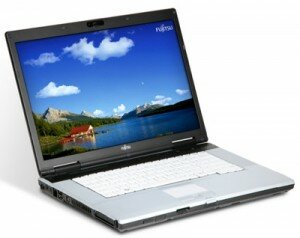 Fujitsu
Fujitsu
Tiny Fujitsu has always had a hard time gaining traction in the western laptop market. The problem with Fujitsu’s laptops is their lack of any exceptional traits. They don’t feel cheap or perform slowly, but from a design standpoint Fujitsu’s laptops are the modern-day “beige box” computer. Fujitsu laptops are not particularly thin, or light, or fast, or good-looking. They don’t have good battery life, or great keyboards. They do have a few models with good screens.
This might also be forgivable if Fujitsu’s laptops were inexpensive, but they’re not. If you do manage to find a Fujitsu laptop at a retailer – fewer and fewer seem to even carry Fujitsu products – you’ll probably find that it costs over $1000. That puts in the territory of Macbooks, Thinkpads and other highly regarded brands, and Fujitsu can’t compete in that company.
Reliability data on Fujitsu laptops isn’t available. The company doesn’t sell many laptops, and as a result there isn’t a large enough sample size to gain any useful data. Customer service data is also hard to find, although the company’s website doesn’t inspire confidence.
Verdict: F
Fujitsu is almost never worth consideration. I am not able to think of even one Fujitsu laptop I would recommend. The company needs to completely overhaul its design approach if it wants to compete in the modern laptop market.
Gateway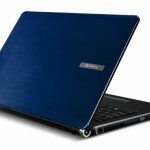
Acquired by Acer in 2007, Gateway has been something of a fading brand. From a design standpoint, Gateway laptops offer very little to talk about, which is unsurprising as Gateway products often use a shared chassis with Acer products. Gateway products can be rather pleasing visually, but keyboards, trackpads and displays are strictly average.
By and large, Gateway’s main selling point is the same as Acer’s – value. Gateways tend to be a bit more stylish and attractive than Acer products, but in many cases the chassis used is nearly identical, and a large number of Gateway laptops now share components, such as keyboards, with Acer laptops.
As with Acer, reliability isn’t great. According to Squaretrade, Gateway is the second to worst brand with a two year failure rate just under 15%. Consumer reports lists Gateway as average with a failure rate of 17%. Gateway’s customer service has taken a nosedive since Acer’s purchase of the company thanks to a new customer service program that places less emphasis on phone support. That would be fine if Gateway’s website was incredible, but it isn’t.
Verdict: C
Gateway offers a few products that are compelling, particularly when online retailers run sales, which are frequent on Gateway products. However, Gateway is far behind the competition when it comes to designing quality laptops, and Acer’s poor customer service has infected the brand.
Recommended Gateway Laptops:
HP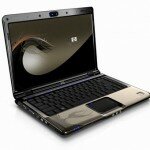
Currently the world’s largest PC brand, Hewlitt Packard offers a huge variety of laptops. Design quality is, unfortunately, all over the map. HP’s ProBook business line and Envy line of premium laptops are both examples of what HP is capable of. HP also makes some very solid netbooks, such as the HP Mini 311.
The company’s mainstream Pavilion laptops have shown improvement over the last year. HP appears to be taking design elements from its upscale Envy line and applying them to less expensive laptops, which results in better-looking and more functional products. HP is doing a good job of making sure these improvements cover most of their range, and the number of their laptops that I would consider of average quality or better is increasing. Most HP laptops now feel solid and are pleasant to use.
HP’s reliability is among the worst in the industry. According to Squaretrade, HP laptops have a two year failure rate of around 16%, making HP the least reliable brand in their findings. Consumer Reports has little better to say, ranking HP as the second worst with a failure rate of 19%. HP’s customer service has improved substantially in over the last year, however. Laptop Magazine found that HP representatives were helpful and hold times were under 2 minutes. You may never even have to call, however, thanks to HP’s solid web support.
Verdict: B
HP’s makes some great consumer laptops, including the Envy line. HP’s corporate products are competitive with those from Lenovo. HP’s greatly improved customer service is a major advantage, but is balanced by poor reliability.
Recommended HP Laptops:
Lenovo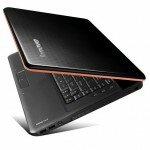
Spun off from IBM’s personal computing division, Lenovo is carries the sacred torch of the Thinkpad business laptop brand. Thankfully, it has treated this well regarded brand with respect. Today’s Thinkpads are among the best ever constructed. The T, X, and W series Thinkpads are particularly good. They offer the most durable construction in the industry, amazing keyboards and excellent trackpads.
In addition to the Thinkpad line, Lenovo has also created the new IdeaPad group of consumer computers. Quality of these products varies, but has been improving over time. The Z series is a solid if unexciting line of mainstream laptops, while the U series offers unique, luxurious build quality and design. Lenovo’s IdeaPads are often a great value, but suffer from poor battery life.
Surprisingly, Lenovo’s reliability isn’t outstanding. Squaretrade ranks Lenovo as fourth worst brand in the industry, with two year failure rates of around 13%, while Consumer Reports places Lenovo in the middle of the pack with a failure rate of 17%. Customer service is good, however, thanks to average hold times and helpful staff. It also seems that Lenovo still makes extensive use of IBM customer service centers located in the United States, which means that there is no language barrier to deal with (unless you have trouble understanding a southern accent!)
Verdict: B+
Lenovo’s Thinkpad products remain the standard for those who want a rugged laptop with an outstanding keyboard and trackpad. The IdeaPad line is very competitive, and some models offer unique design unlike any other brand in the industry.
Recommended Lenovo Laptops:
MSI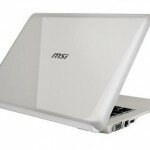
MSI’s presence in the laptop market has always felt a bit tentative, as if the brand isn’t really sure if it belongs there or not. MSI has tried to stand out with the slim X series laptops, which mimic the thin design of the Macbook Air, but these laptops proved to be poorly built. MSI has recently tried to instead gain traction in the gaming laptop market, and has some products that provide a good value, although the ASUS G series is often a better choice.
MSI laptops are usually not well designed when it comes to keyboards, touchpads, and general build quality. Reviews of the MSI X340, for example, stated that “Even a light key-press produces a visible flex in the surrounding keys, and the whole thing tends to bounce rather disconcertingly as you peck away. “ MSI’s netbooks and gaming laptops do not suffer from these issues to the same extent, but still are no where near the best laptops in terms of quality.
Reliability data is not available for MSI because of MSI’s status as a relatively new player in the market. Customer service is poor. The MSI website is almost useless as a resource for resolving issues, so you will have to call in even for the most basic of problems. The company doesn’t offer 24-hour support, either, further limiting support options. Hold times are usually not long, however.
Verdict: D
MSI is trying to gain traction, but is having trouble. Although its laptops have not gone down in quality, they are falling behind larger competitors like HP and Dell, not to mention ASUS.
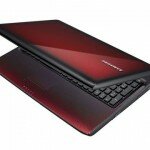 Samsung
Samsung
A relatively new and still small laptop brand, Samsung has been trying hard to muscle its way into the market. Samsung is, of course, a very large consumer electronics brand that sells everything from HDTVs to phones, and their quality in other markets has generally been good. So far this quality seems to be trickling into their laptop products as well.
From a design standpoint, Samsung’s products tend to be uninspiring, a few exceptions aside. Unfortunately, the company has been spinning its wheels in this regard, and many of the newer Samsung laptops seem no more attractive – and in some cases, less attractive – than those sold a year or two ago. Because competitors like HP and Dell are making strides in the areas of build quality and design, Samsung is becoming less competitive.
Reliability is still up in the air because of Samsung’s status as a new player on the market. As is often the case with the newer brands, Samsung’s website provides poor customer support. The phone support is accurate and quick, but because other companies have made improvements to their own service, this is no longer as pleasing.
Verdict: C
Samsung is still new to the market, so it is hard to say if their laptops will prove reliable. The company does offer well built products that provide good value for the money. However, Samsung hasn’t made the advancements I’d hoped over the last year; they’ll need to step up their design and customer service if they want to stay competitive.
Recommened Samsung Laptops:
Sony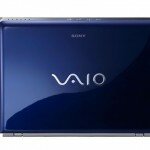
Sony is the closet thing which the laptop market has to a premium brand (with the obvious exclusion of Apple). There is nothing in Sony’s lineup which is targeted to be a “budget” model. The pricing of their mainstream laptops usually starts around $600, and Sony offers numerous models above $1000. Sony is competitive in most markets, although the brand doesn’t offer a dedicated line of gaming laptops and doesn’t compete in the sub-$400 netbook market.
You don’t always get what you pay for. I’ve been disappointed by some of Sony’s recent laptop offerings. The problem is not that they’re becoming worse, but that competition is getting better. Vaio laptops that once were head-and-shoulders above the rest in design and quality now seem average. At least Sony still offers crazy colors – if you want a pink or lime green laptop, this is your brand.
The reliability of Sony’s products is about average. Squaretrade rates Sony as having a two year failure rate of just over 10%, making Sony the third most reliable brand. Consumer Reports ranks Sony as being the third least reliable brand with a failure rate of 18%. Sony also offers good customer service. Sony provides very comprehensive web service and hold times are short if you do need to call in.
Verdict: B-
Sony is an excellent brand. Their products are expensive, but usually worth the extra cost. I am a little concerned about their design, however; some of their laptops haven’t had their chassis significantly redesigned in some time.
Recommened Sony Laptops:
Toshiba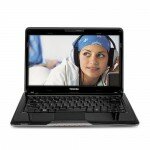
One of the oldest players in the laptop market, Toshiba paints itself with an extremely broad brush. The brand doesn’t seem to boast itself as being a specialist in any one area and instead does everything. Netbooks, gaming laptops, mainstream laptops, ultraportables – if there is a market, this brand offers a product in it.
Usually this results in a dumbing-down of the brand overall, but Toshiba offers excellent products in every category. It is particularly strong, however, in netbooks, multimedia laptops and ultraportables.
Toshiba’s great products are backed up by great reliability. Squaretrade ranks Toshiba as the second most reliable brand with a two year failure rate of just under 10%. Consumer Reports gives Toshiba the top spot, with a failure rate of 15%. Customer service is average, thanks largely to a website which isn’t as helpful as it could be. If you have to call in you’ll typically find that hold times are short and that the customer service representatives are helpful.
Verdict: A-
Toshiba is a solid brand. Anyone looking for a netbook, gaming laptop or ultraportable should look at what Toshiba has to offer. The brand’s mainstream products are a little bit underwhelming, but considering the brand’s excellent reliability reputation and customer service I think you should still give them a look.
Recommend Toshiba Laptops:
Overall Rankings and Conclusion
I am not going to make any attempt to rank the brands by any sort of numerical system. The information I have comes from multiple sources, and trying to mesh them together into a number would be ridiculous. However, I do think that there are a few distinct “tiers” of manufacturers.
First we have the top-tier brands. These include Apple, ASUS, Lenovo and Toshiba. These brands offer products which are well designed and reliable and also have reasonably good customer service.
Below that we have a second tier of brands. These include brands such as HP, Dell, Samsung, Sony and Acer/Gateway. These brands aren’t always able to offer the best products, but they do excel in certain markets. HP and Dell offer great budget laptops, Toshiba has great reliability at low prices, and Acer/Gateway offers a lot of hardware for your money.
Bringing up the rear we have MSI and Fujitsu. These brands offer few compelling products and are generally only able to compete based on value, if at all. You may be able to find a quality laptop from these manufacturers, but most often the best laptop brand is found elsewhere.
This article was last updated on: 11/4/2011
Information here is based on the sources below, and also on the experience of Matt Smith, author of this blog and professional reviewer for publications such as Bright Hub, Digital Trends and PC Perspective.
Sources
Laptop Magazine 2010 Brand Ratings
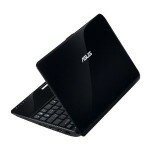

You must log in to post a comment.
{ 20 trackbacks }